Uber Paintings
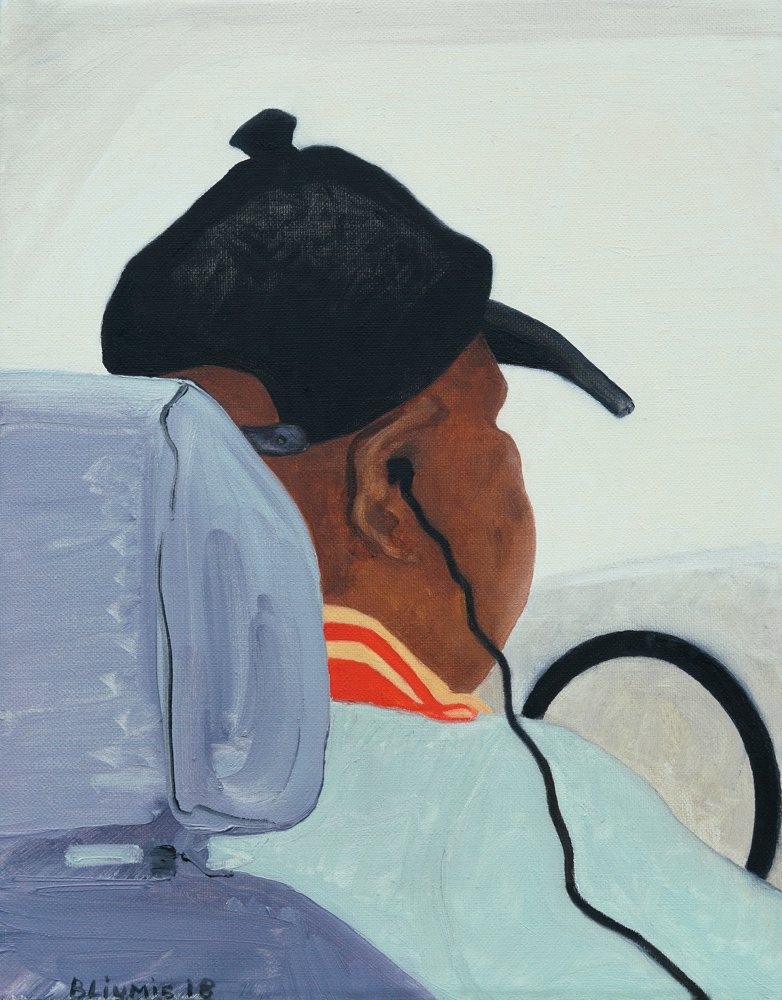
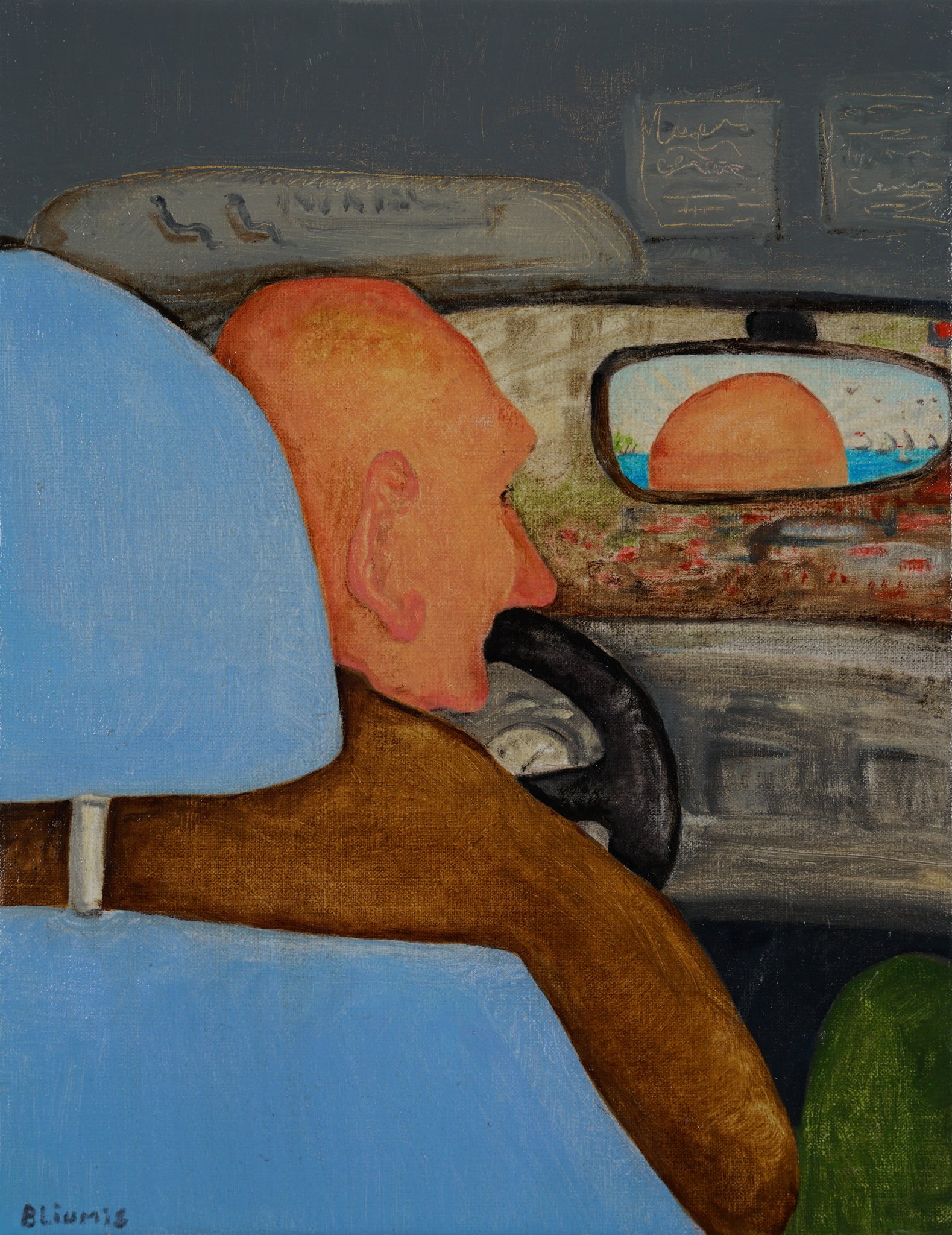
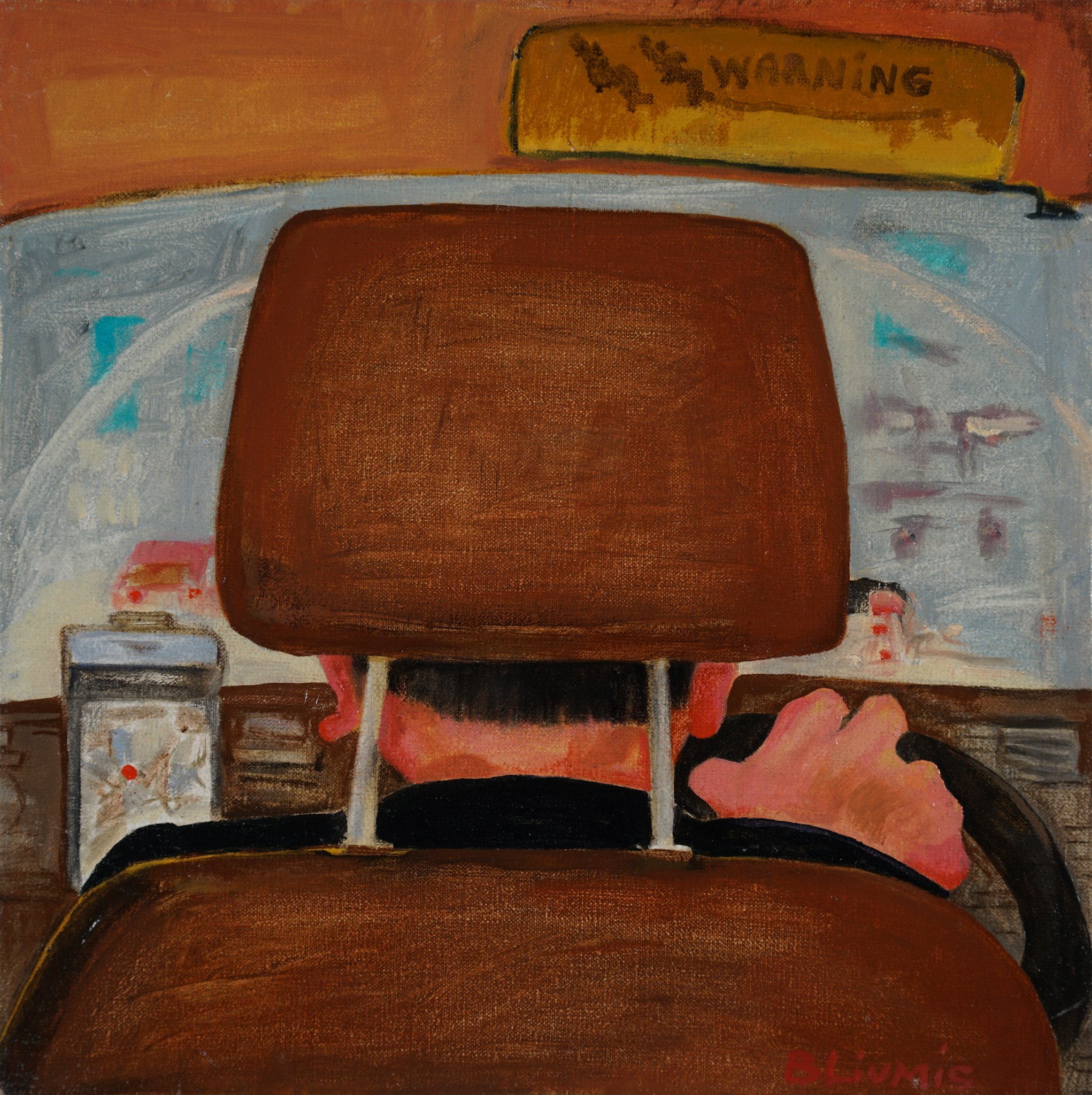
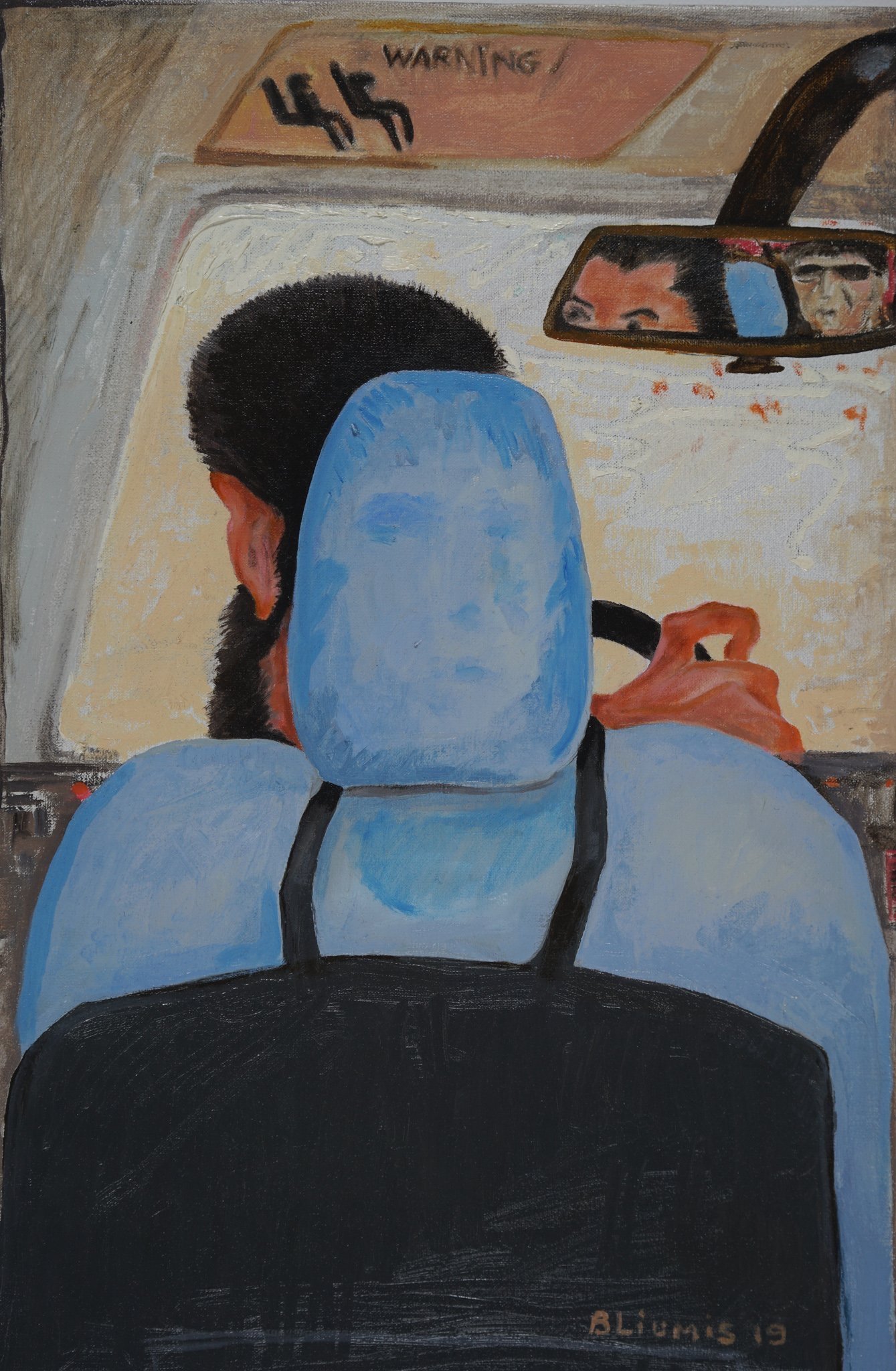
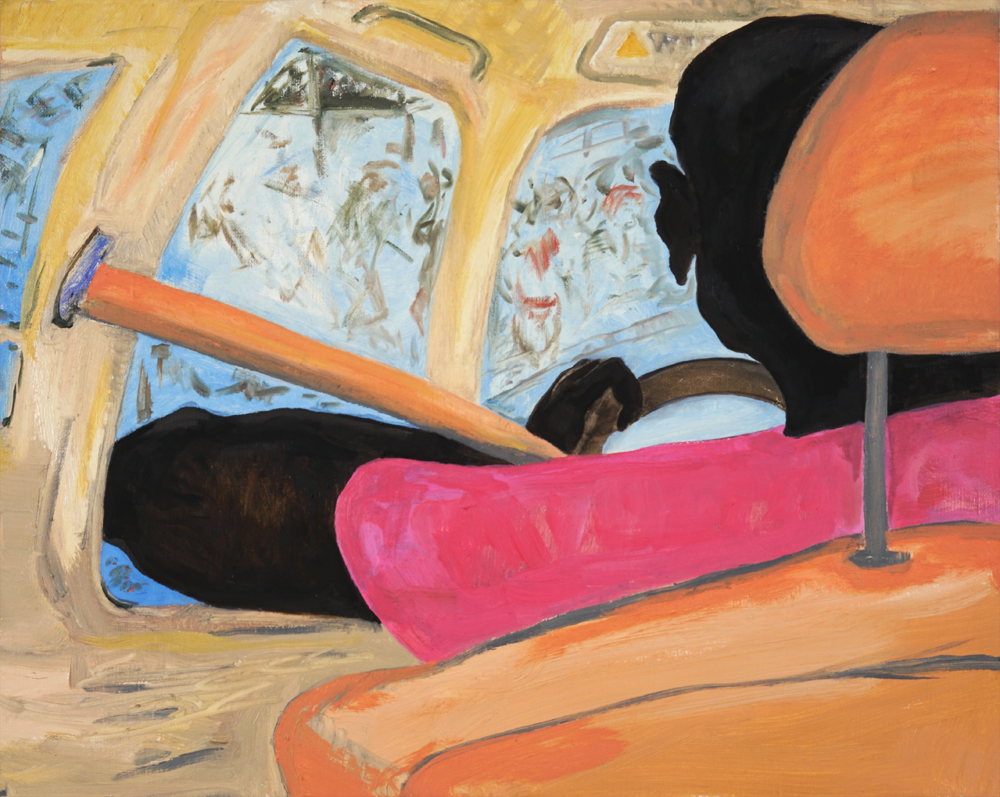
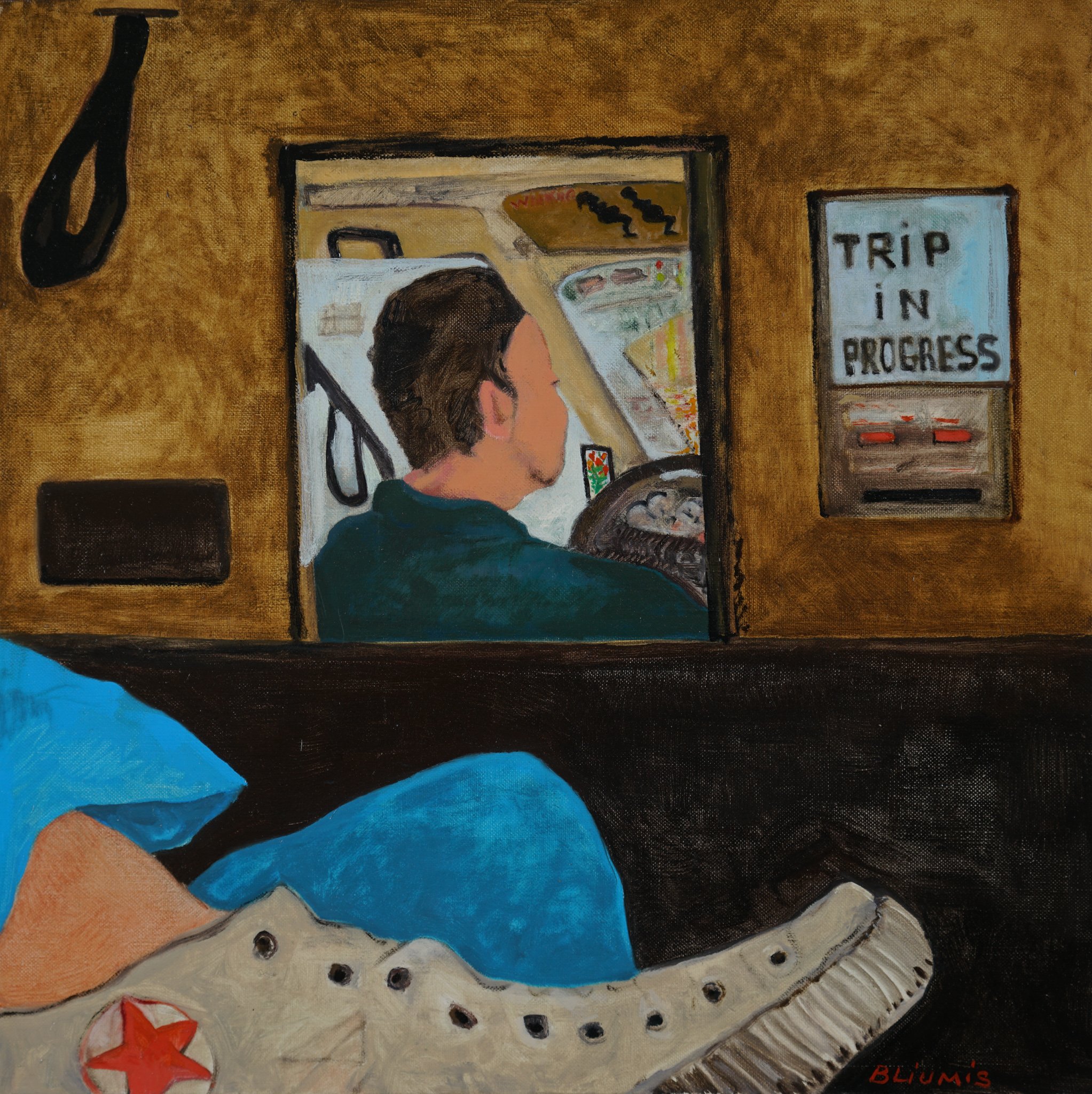
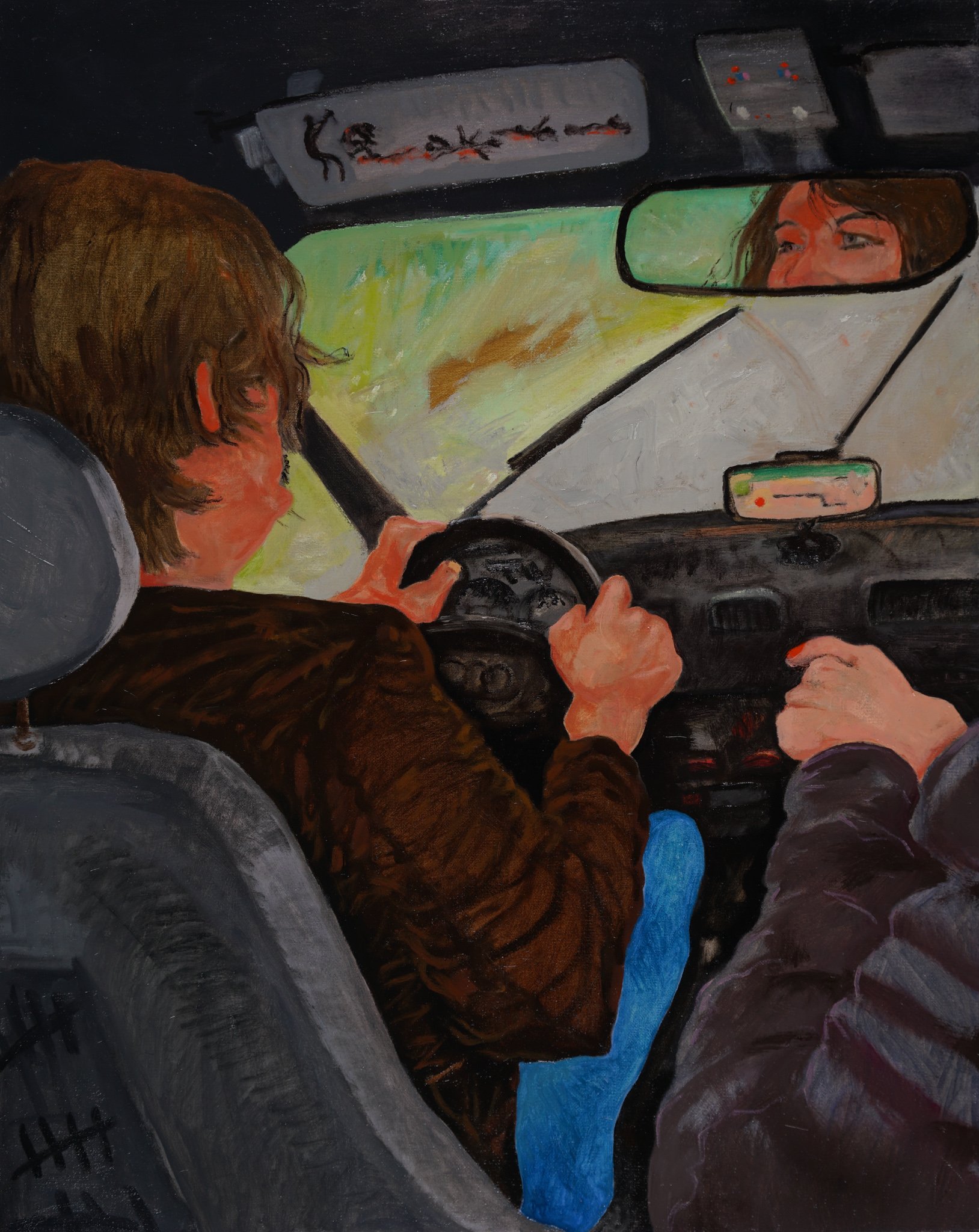
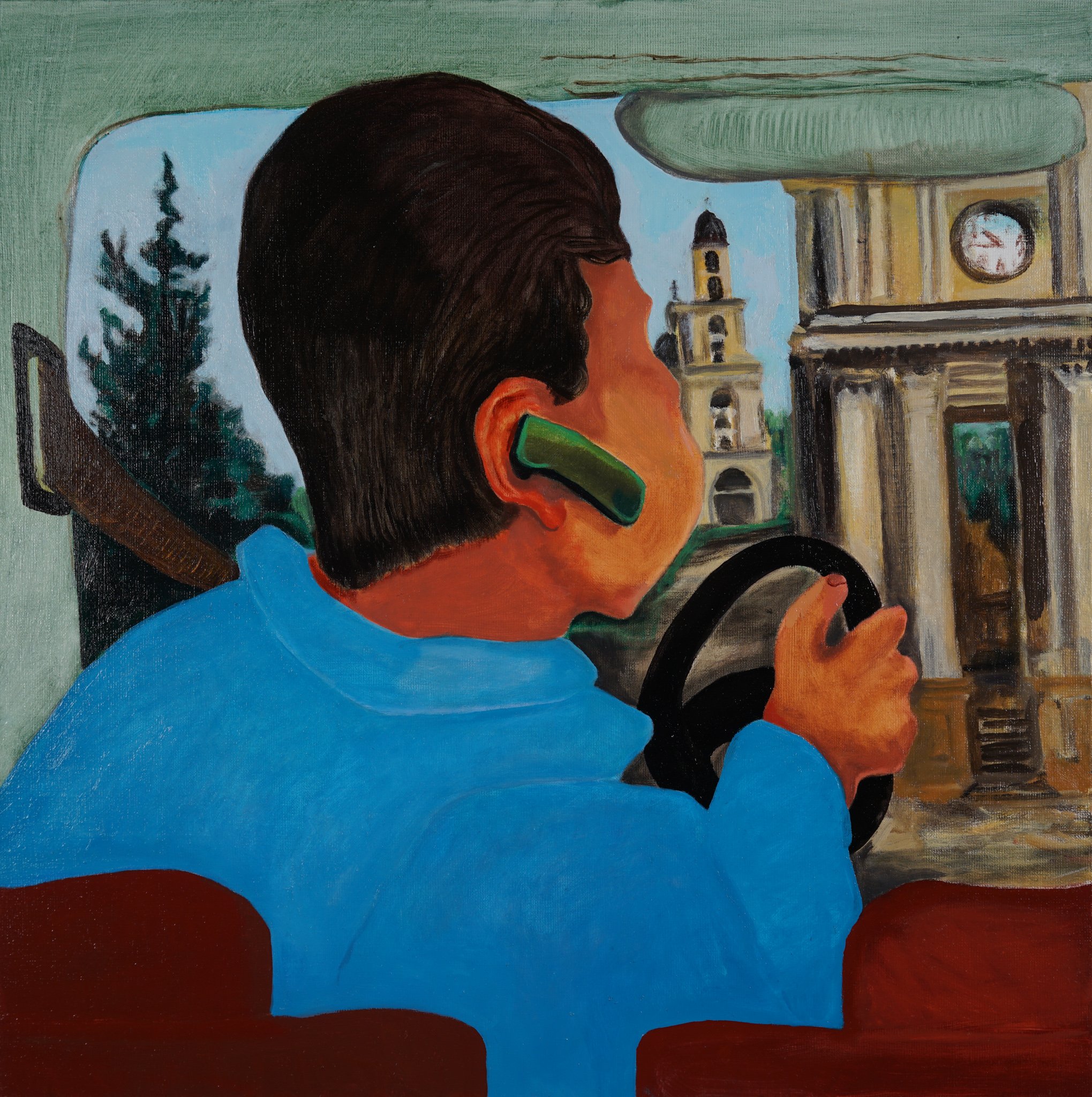
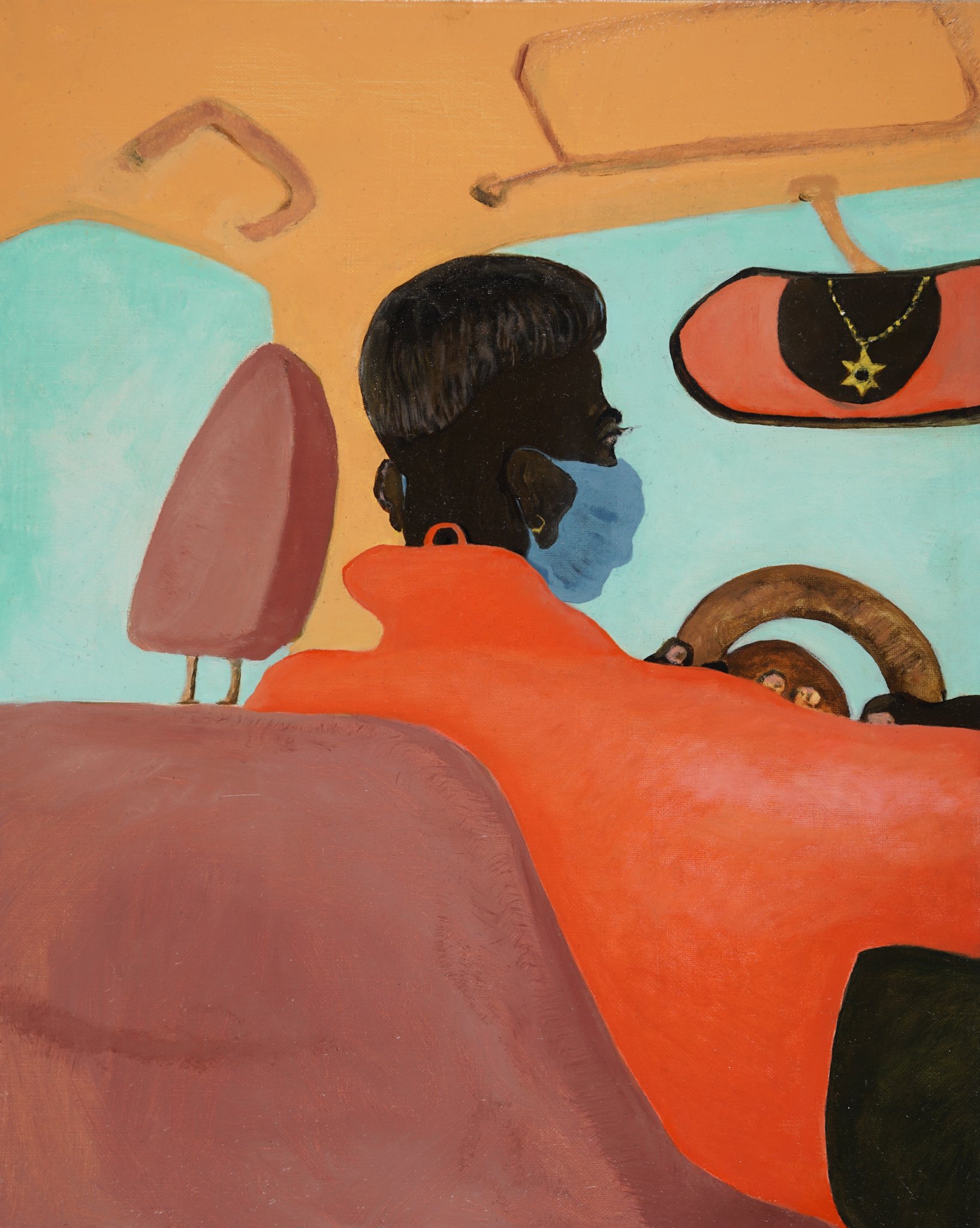
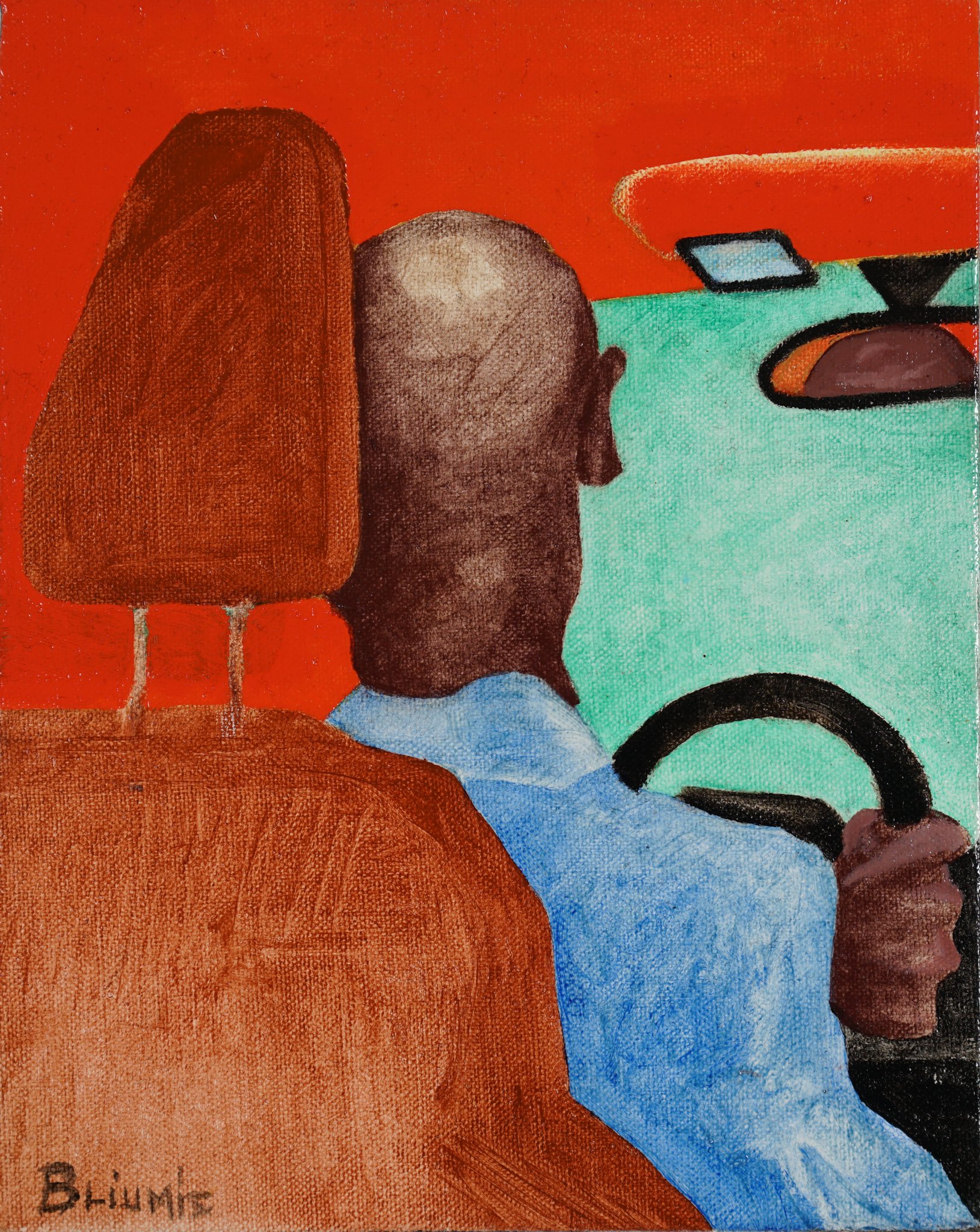
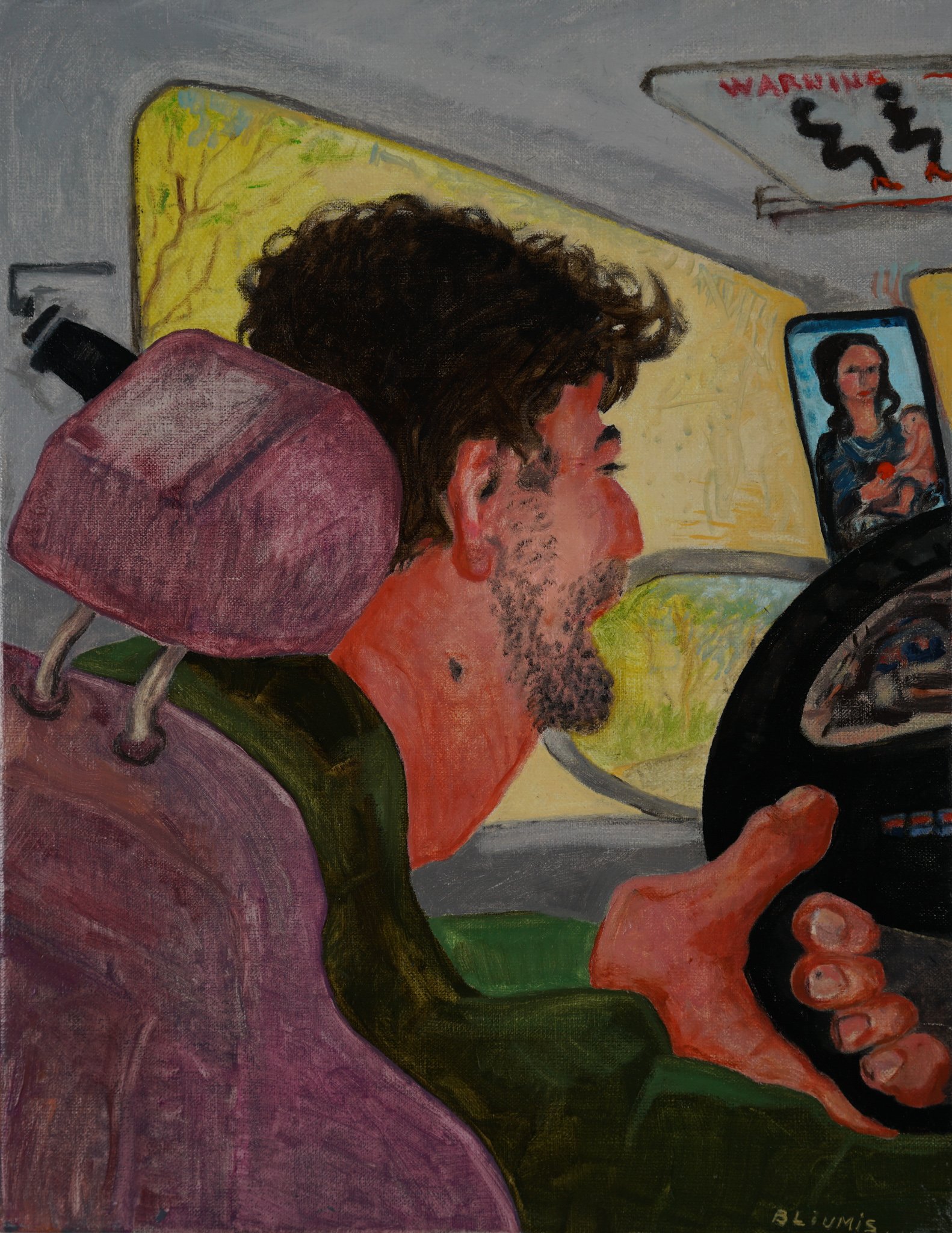
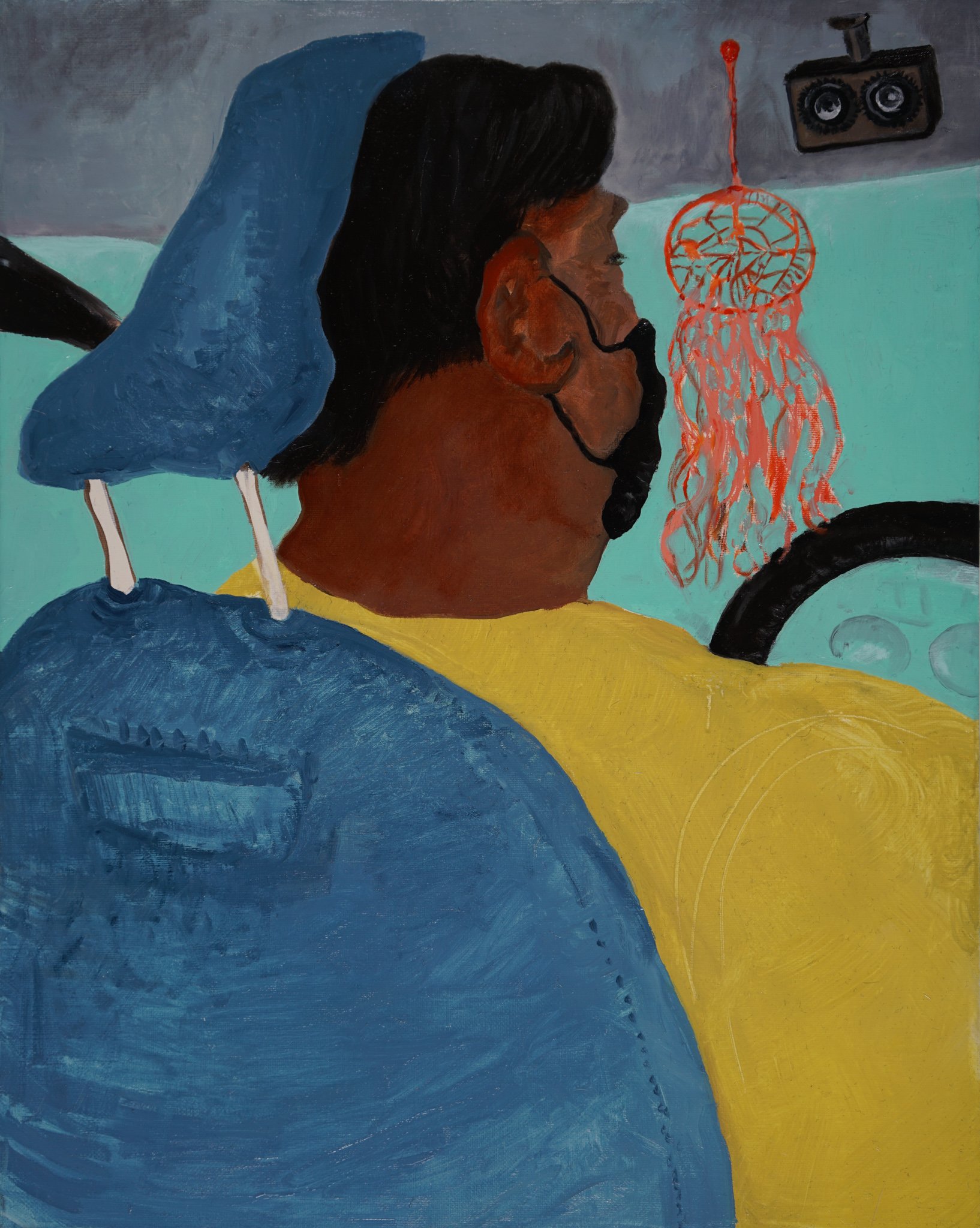
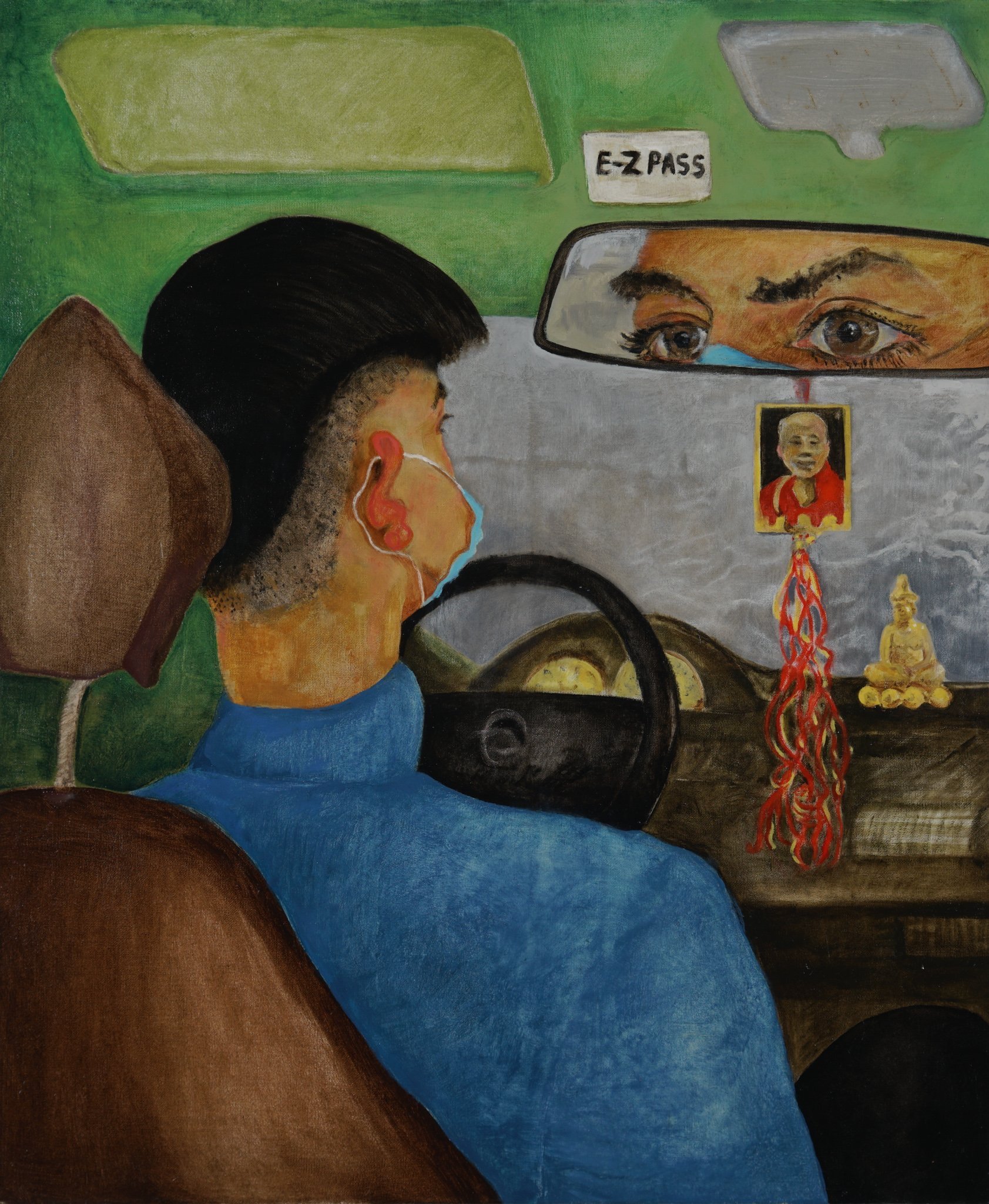
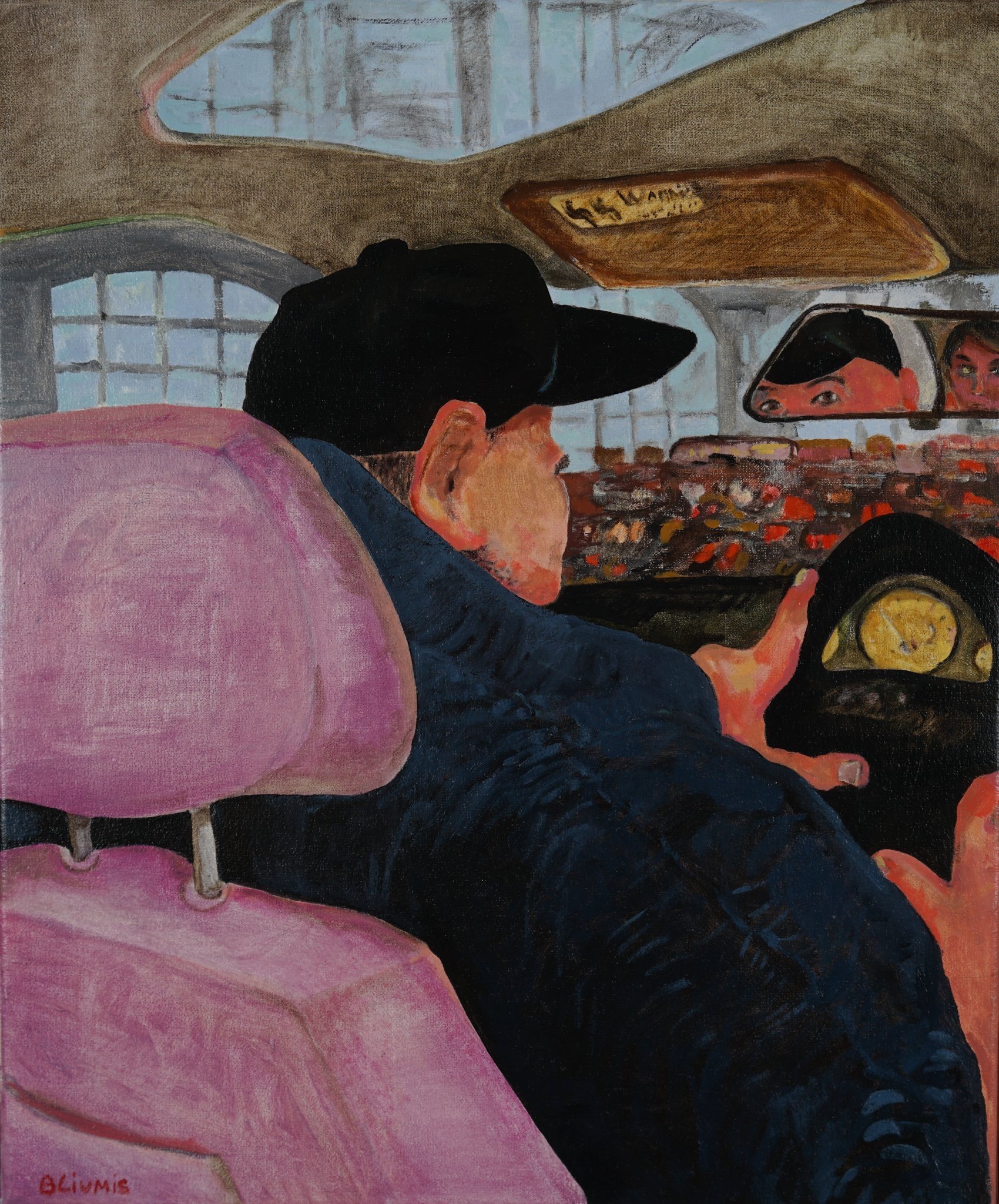
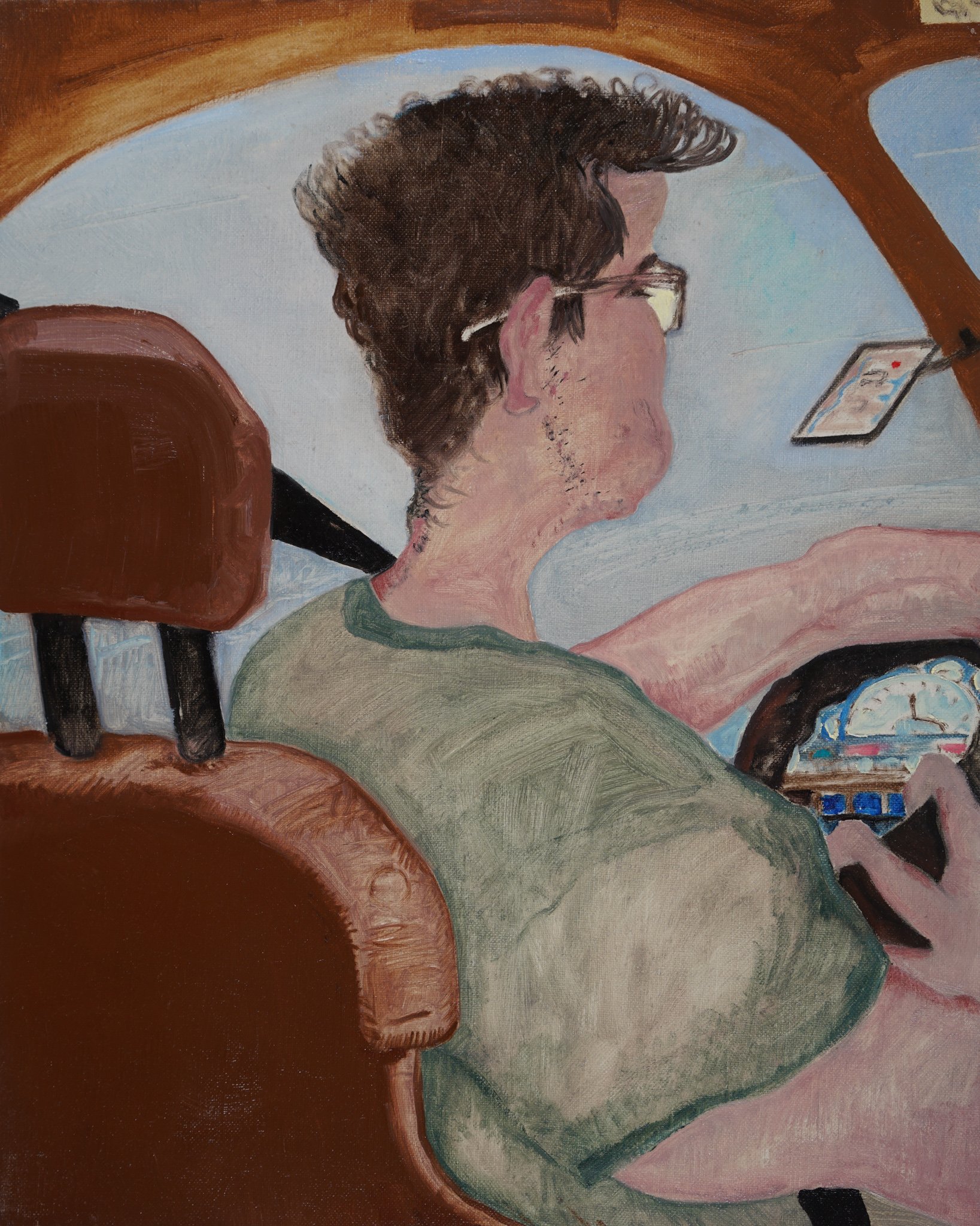
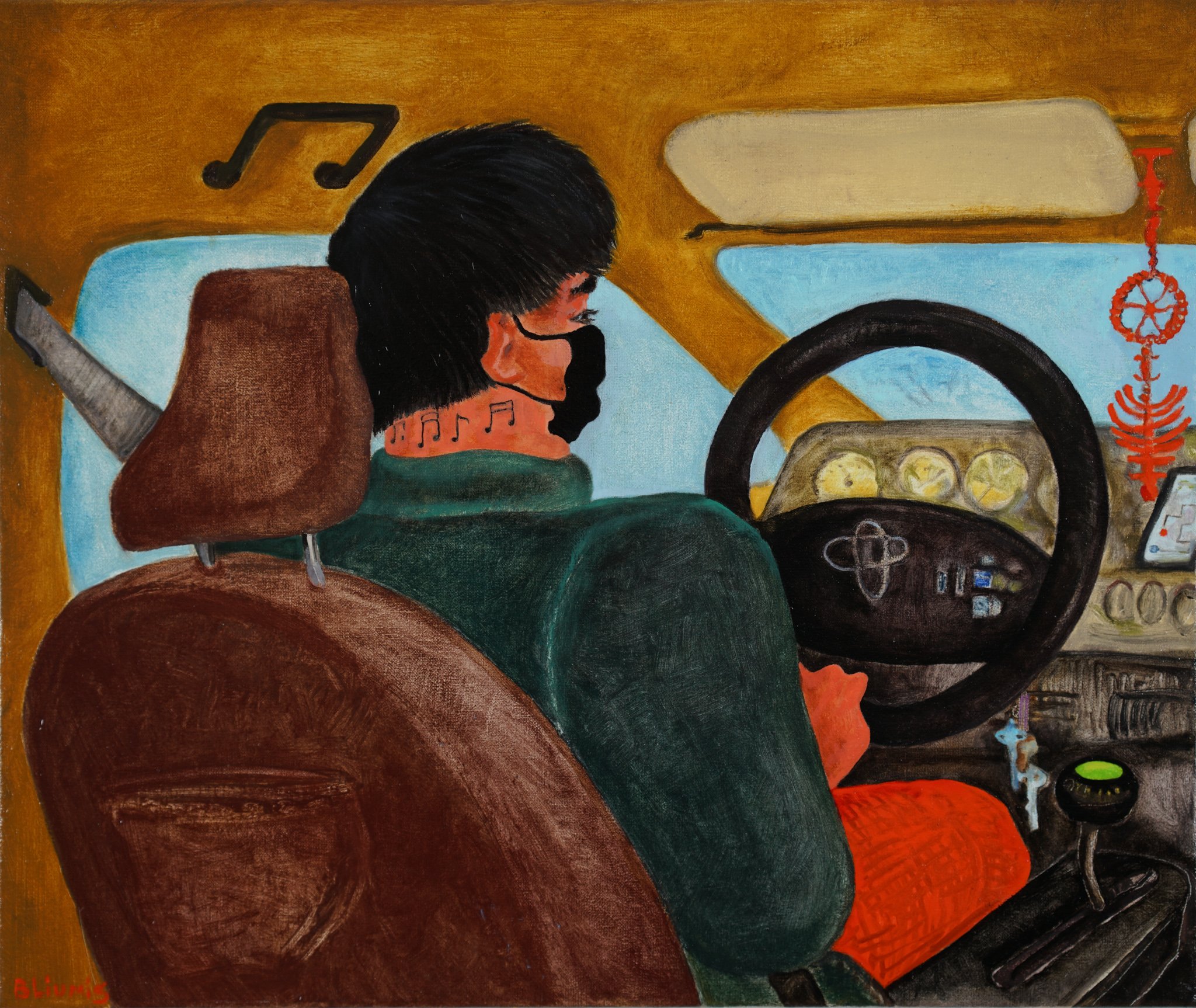
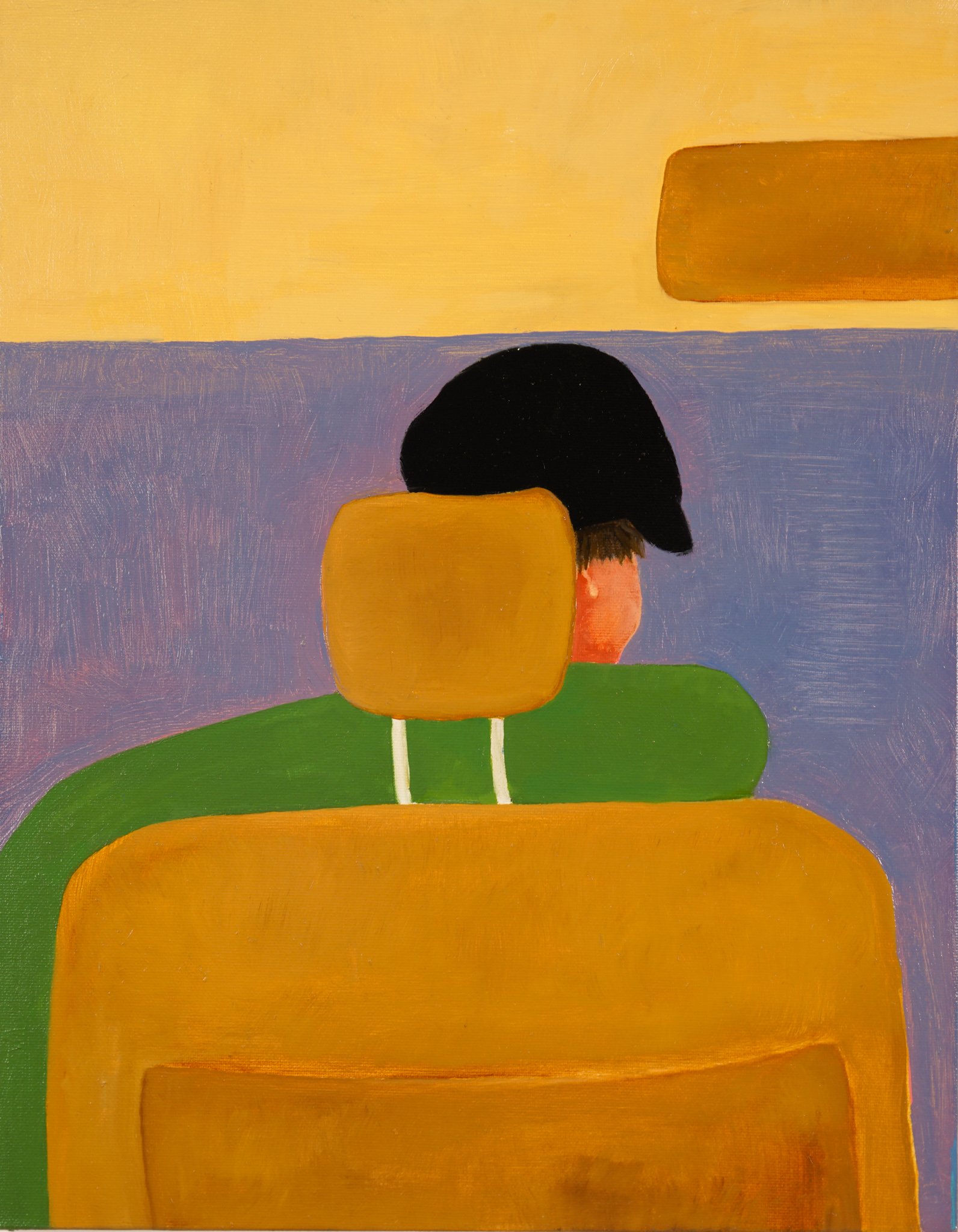
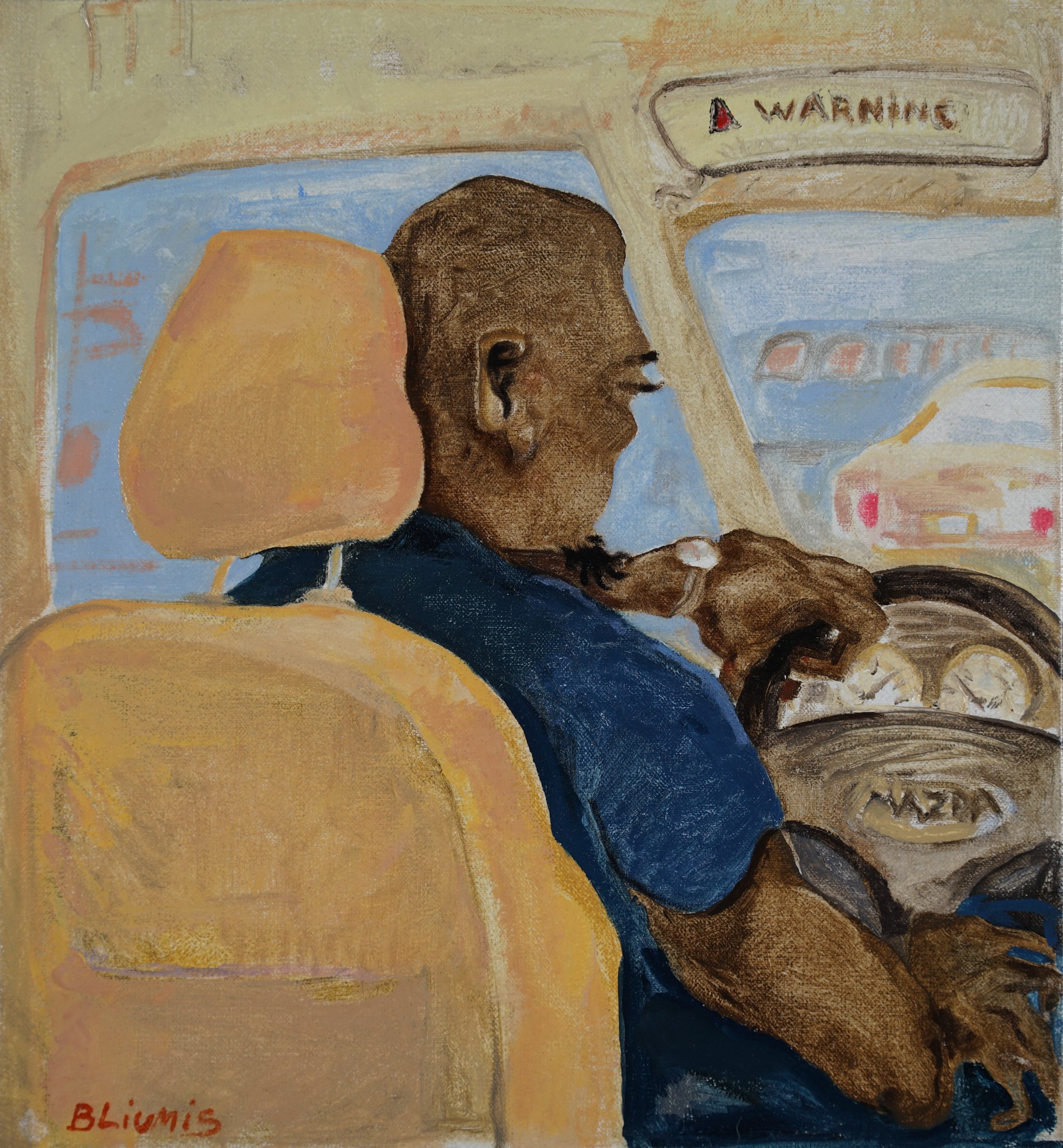
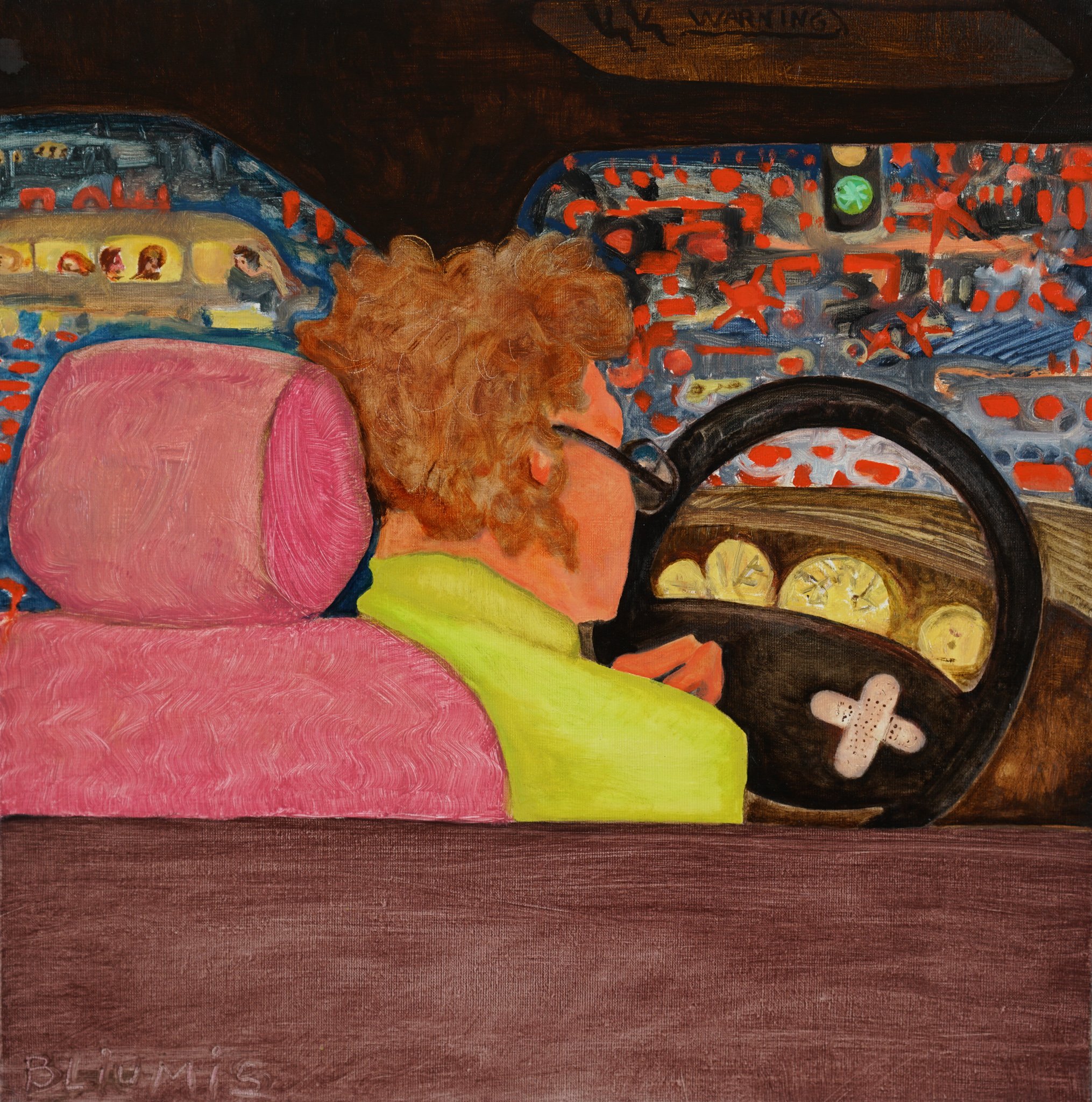
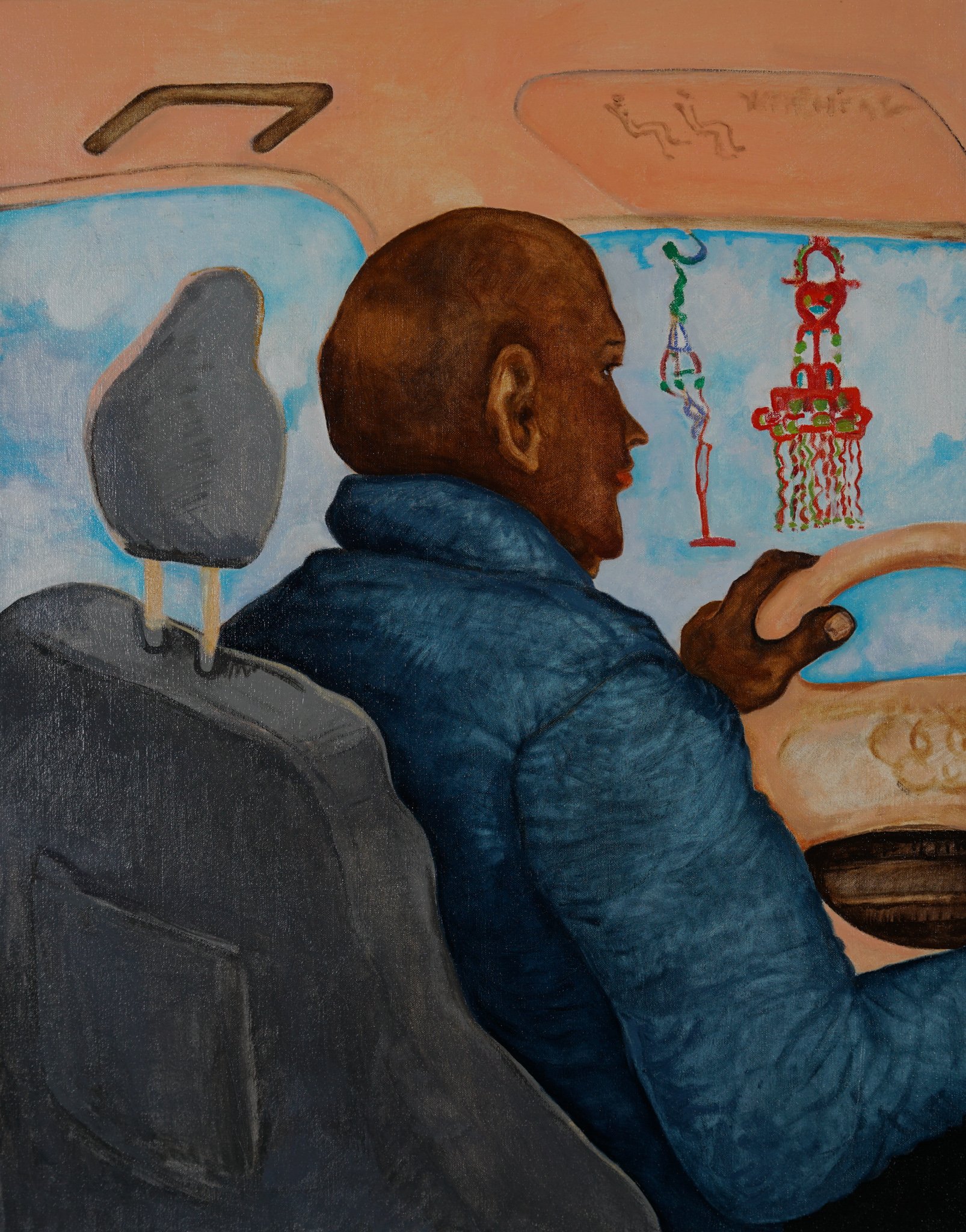
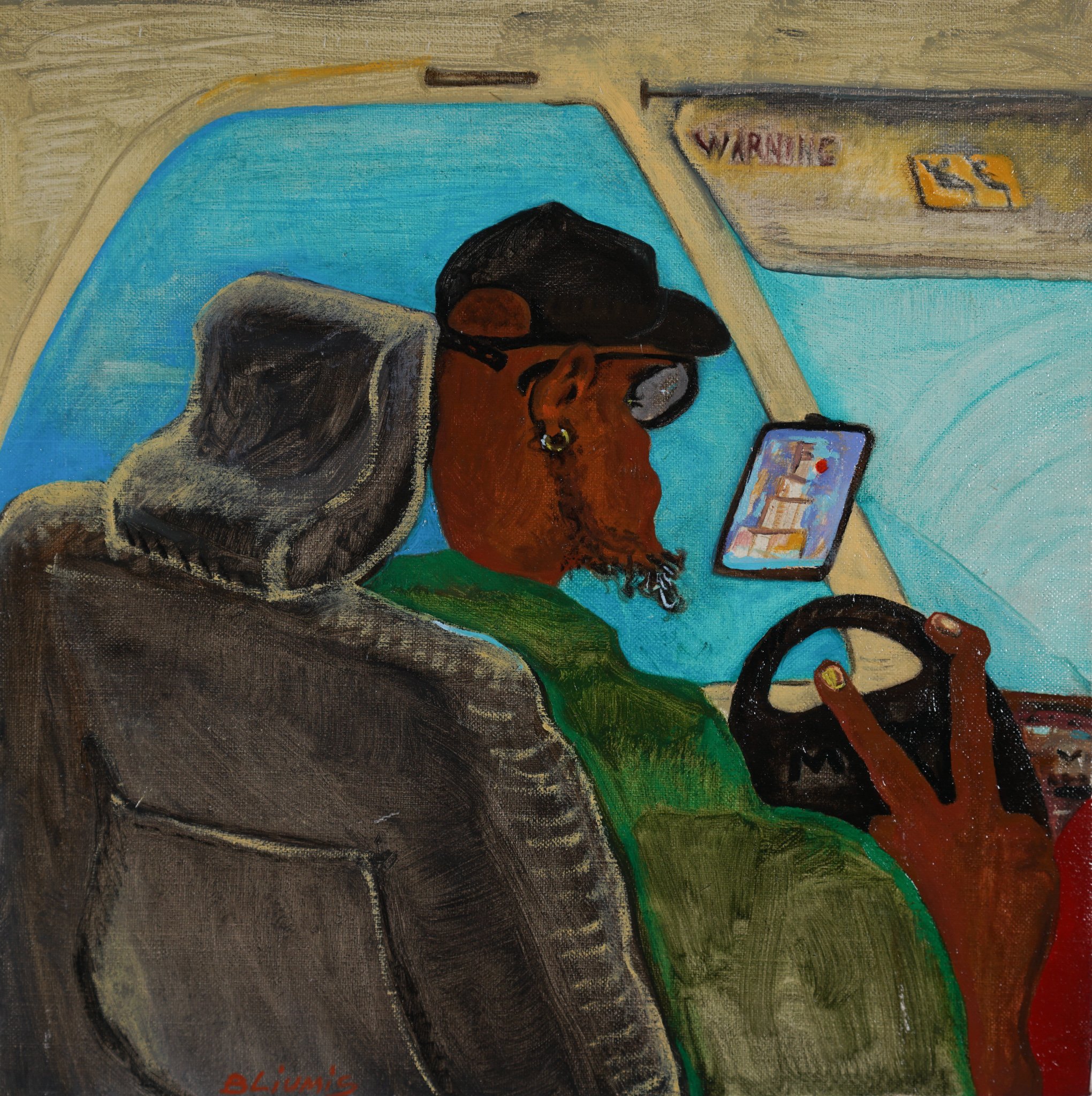
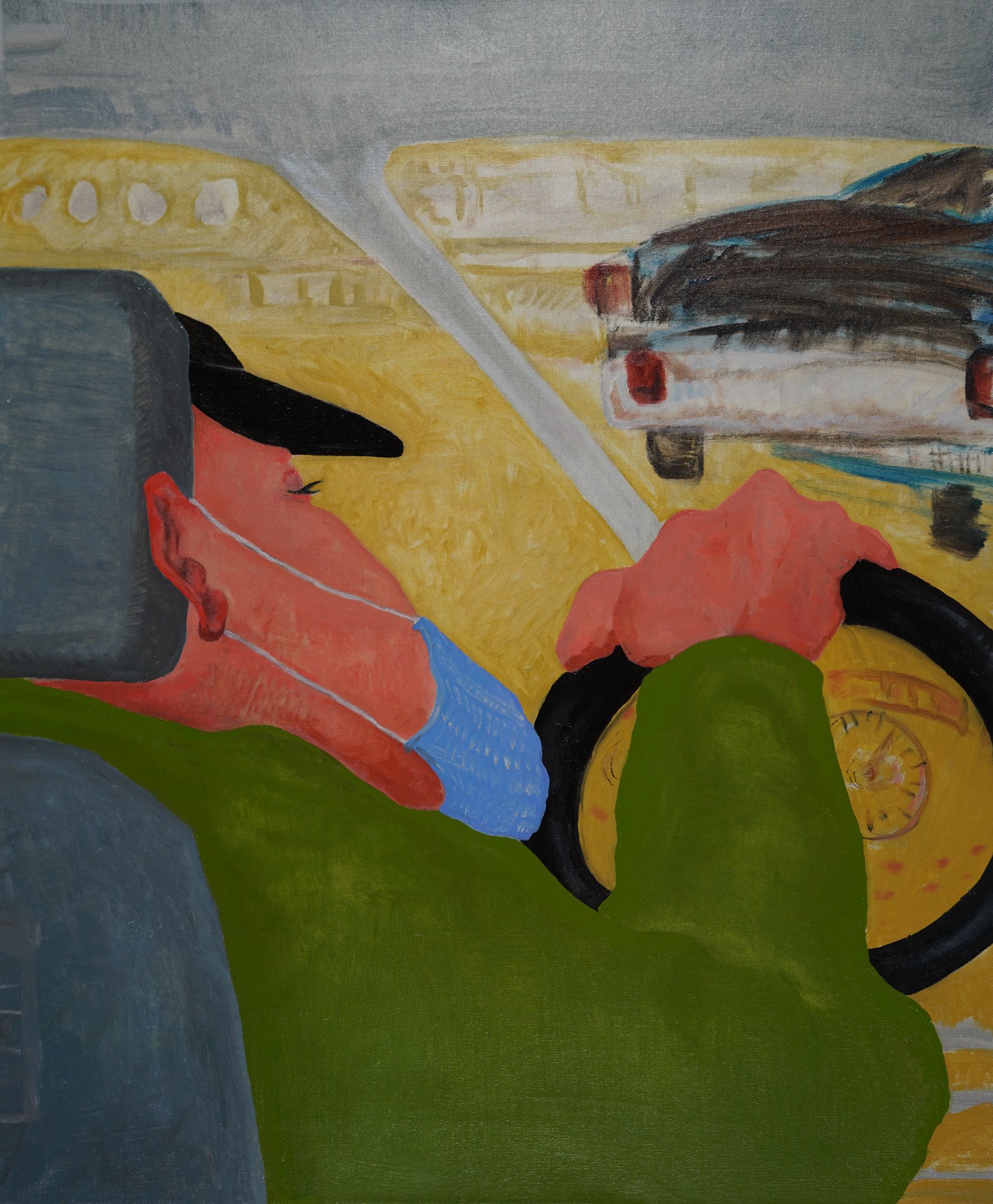
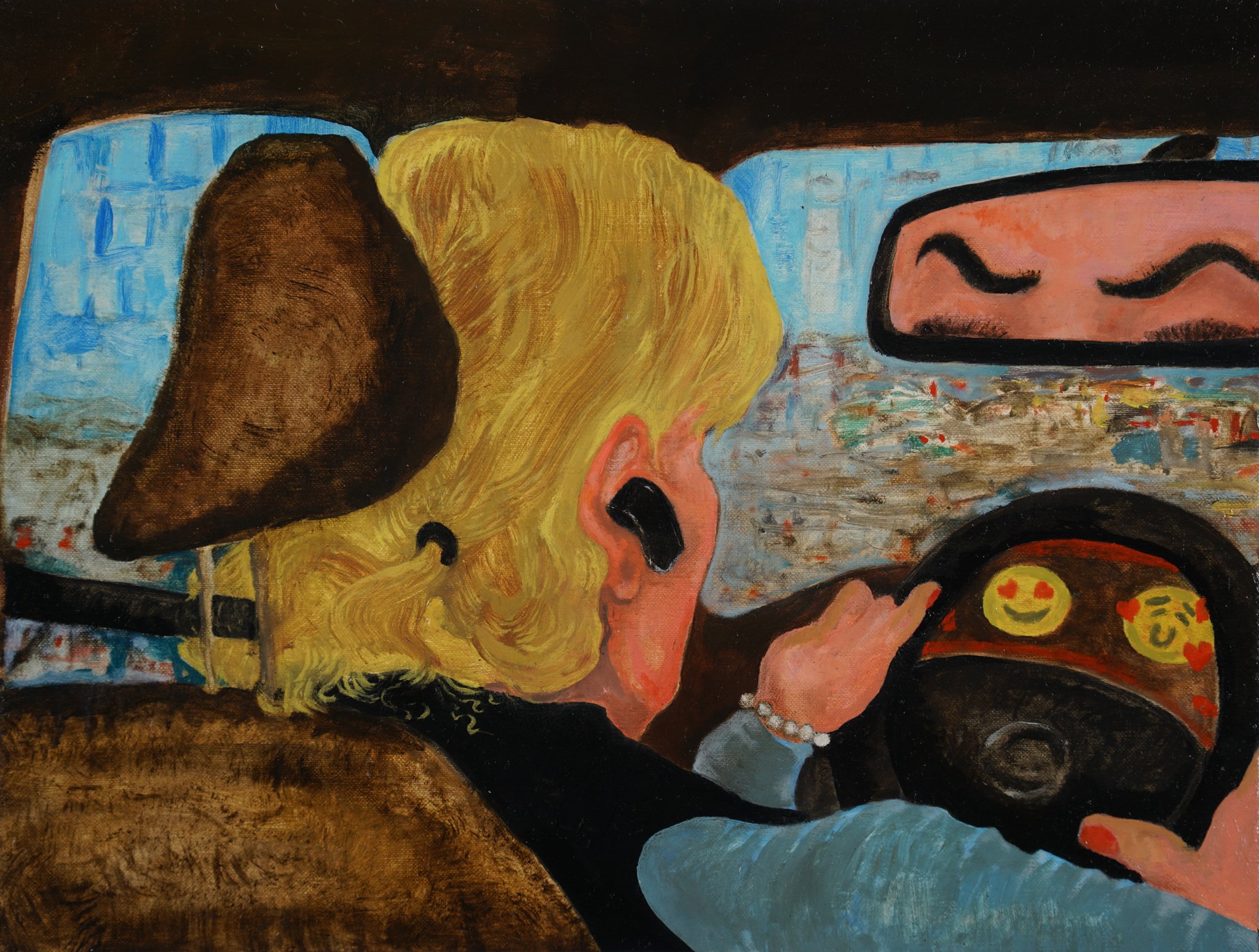
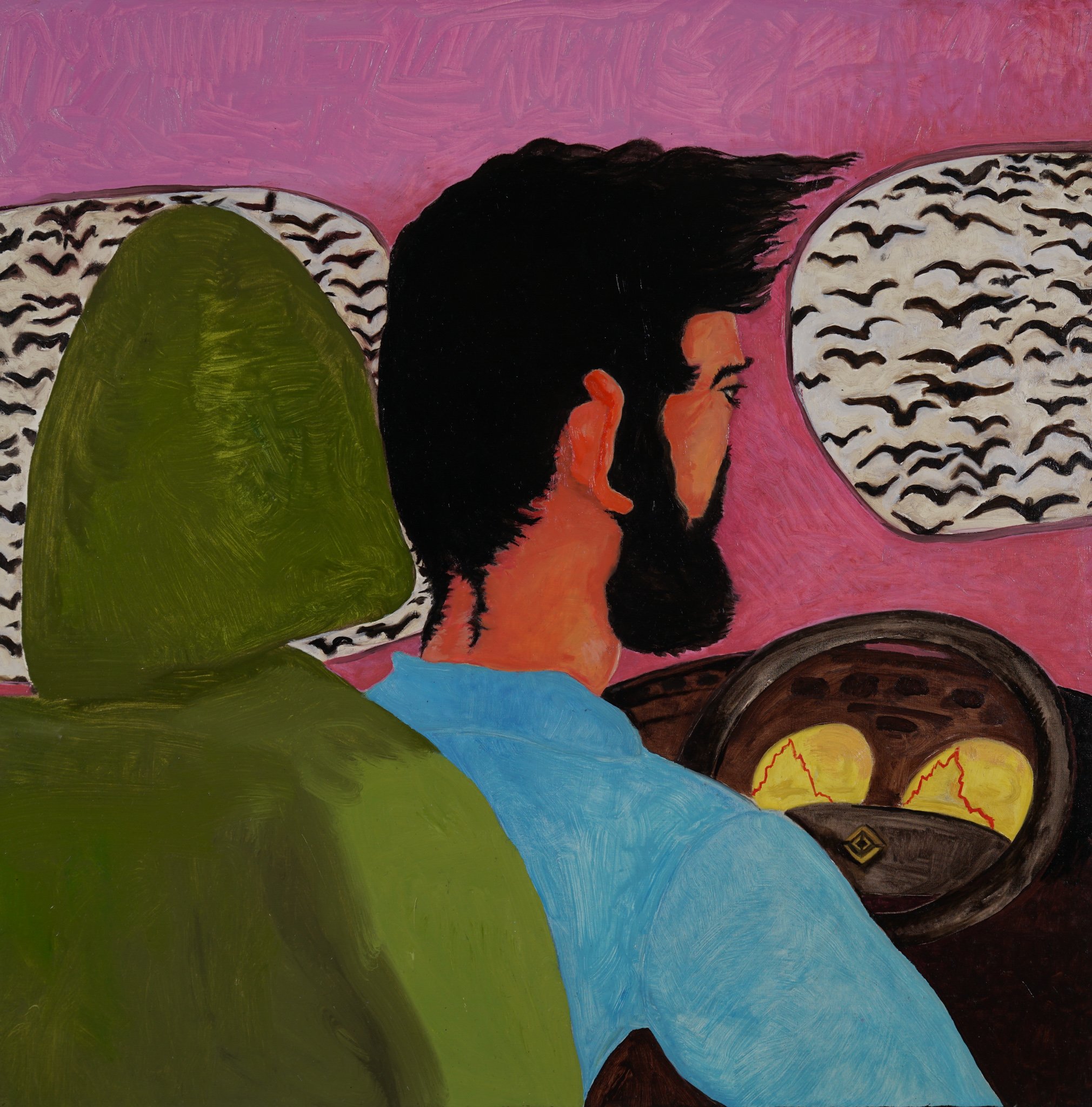
Jeff Bliumis always travels with a sketchbook. He quickly records in pencil or pen the images of people, places, and things that he sees around the city or while traveling around the world. This ongoing series of portraits taken from the back seat of cabs, taxis or ubers began, like many things, by accident. A trip to the airport, boredom. From his pocket, he pulls out his sketchbook and starts drawing what he sees from the back seat. There he/she is, the driver, and there they are: the headrest, the steering wheel, the rear-view mirrors, the gear stick, knick-knacks, the framed image of a woman and a child, trinkets, a swinging buddha, the omnipresent cell phone, the driver’s license framed in plexiglass, trifles, Mayor’s note, stickers, bottles, cans, take outs, coffee, the windows, outside birds flying, other cars, other people, other circumstances, other opportunities for Jeff. Some anthropologists could say that he is a participant observer. He takes field notes, critical for later analysis and reimagining. Back at the studio, the painter realizes that there is something in those notes, a path to be explored. He sees a trip inside the trip. The drawing is then pulled out from the sketchbook, and recomposed on canvas. The process is not as easy and fluid as it sounds. Traveling is fundamental, but as Pessoa said, one needs only to exist to travel. One needs also to have a sense of the right moment. To recognize significant instants as opportunities.
One need only exist to travel. I go from day to day, as from station to station, in the train of my body or my destiny, leaning out over the streets and squares, over people’s faces and gestures, always the same and always different, just like scenery.
If I imagine, I see. What more do I do when I travel? Only extreme poverty of the imagination justifies having to travel to feel.
Any road, this simple Entepfuhl road, will lead you to the end of the World [Thomas Carlyle]. But the end of the world, when we go around in full circle, is the same Entepfuhl from which we started out. The end of the world, like the beginning, is in fact our concept of the world. It is in us that the scenery is scenic. If I imagine it. I create it; if I create it, it exists; if it exists, then I see it like any other scenery. So why travel? In Madrid, Berlin, Persia, China, and at the North or South Pole, where would I be but in myself, and in my particular type of sensation? Life is what we make of it. Travel is the traveler. What we see isn’t what we see but what we are.
— Fernando Pessoa, “Alpha and Omega” from the Book of Disquietude, 1925
Jeff Bliumis travels in search of people, of adventure, of experience. Before being a participant observer, Jeff is an active traveler. Not a tourist, some passive wanderer who expects interesting things to happen to him. He is not someone who goes “sightseeing” in flocks. A common friend once said that if Bliumis was to be a tourist, he would be a tourist from another time, when tourists were tourists because of their religion, as opposed to now when they are tourist because tourism is their religion.” To Jeff, traveling is like flirting with life, it is the source of dreams that keeps passions alive. As Lisa St Aubin wrote, “It’s like saying: I would stay here and love you, but I have to go; this is my station.” Jeff sketches the memory of each fleeting relationship. A postcard will follow. A portrait of that distant love. Jeff can go on forever. The list of love stories that last the time of a cab ride or of a chat in a bar it’s infinite, as ours isn’t a small world; on the opposite, it is immense, made immense by the never-ending steps any human being on foot could take, or riding a horse, or even astride a fast taxi. As immense as the number of drivers, the protagonists who guide Jeff’s physical weight and his visual imagination. They have names and are innumerable as the roads they travel on, and they keep going on forever, both drivers and roads, dirt and dark, faint tracks sometimes. They get lost in swamps or mountains, but they always eventually reappear.
— Guido Dalontano, from “Far From Where?”, Olioro Publisher, Cavo (LI), October 2023